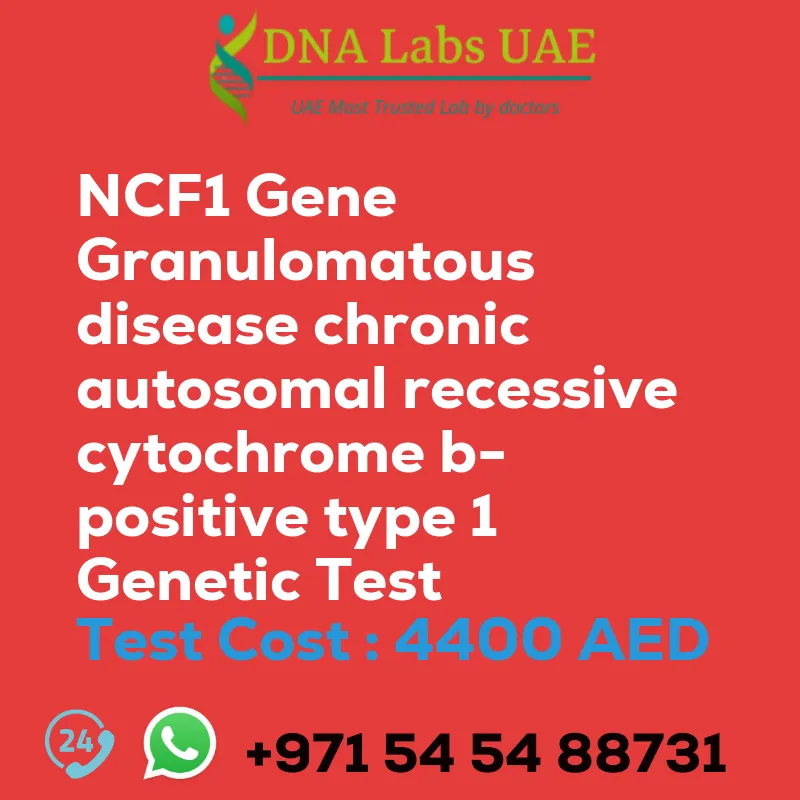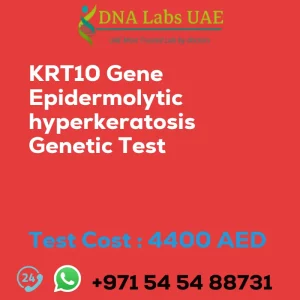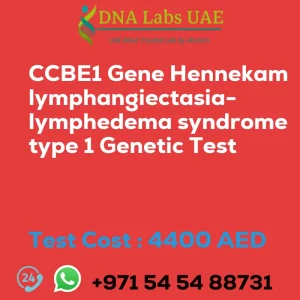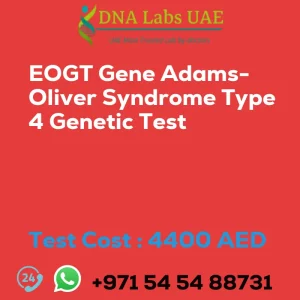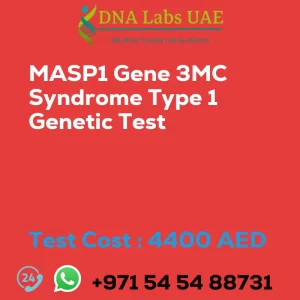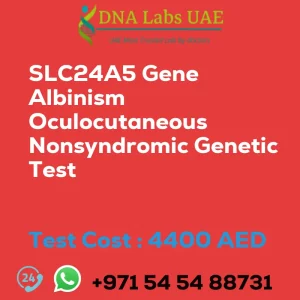NCF1 Gene Granulomatous Disease Chronic Autosomal Recessive Cytochrome b-Positive Type 1 Genetic Test
Test Name: NCF1 Gene Granulomatous Disease Chronic Autosomal Recessive Cytochrome b-Positive Type 1 Genetic Test
Components: Blood or Extracted DNA or One drop Blood on FTA Card
Price: 4400.0 AED
Sample Condition: Blood or Extracted DNA or One drop Blood on FTA Card
Report Delivery: 3 to 4 Weeks
Method: NGS Technology
Test Type: Osteology Dermatology Immunology Disorders
Doctor: Dermatologist
Test Department: Genetics
Pre Test Information: Clinical History of Patient who is going for NCF1 Gene Granulomatous Disease, Chronic, Autosomal Recessive, Cytochrome b-Positive, Type 1 NGS Genetic DNA Test. A Genetic Counselling session to draw a pedigree chart of family members affected with NCF1 Gene Granulomatous Disease, Chronic, Autosomal Recessive, Cytochrome b-Positive, Type 1 NGS Genetic DNA Test gene NCF1
Test Details
The NCF1 gene is associated with a condition known as granulomatous disease, which is characterized by the formation of granulomas in various organs and tissues. This condition is chronic and inherited in an autosomal recessive manner, meaning that an individual must inherit two copies of the mutated gene (one from each parent) to develop the disease.
The NCF1 gene provides instructions for producing a protein called cytochrome b-245, which is a component of an enzyme complex involved in the immune system’s response to infection. Mutations in the NCF1 gene can lead to a deficiency in cytochrome b-245, impairing the immune system’s ability to effectively kill certain types of bacteria and fungi.
To diagnose granulomatous disease caused by NCF1 gene mutations, a type 1 Next-Generation Sequencing (NGS) genetic test can be performed. NGS is a high-throughput method that can analyze multiple genes simultaneously, allowing for a comprehensive assessment of genetic variants associated with the disease.
This genetic test involves obtaining a DNA sample, typically through a blood sample, from the individual suspected of having granulomatous disease. The DNA is then sequenced using NGS technology, which identifies any mutations or variants in the NCF1 gene.
The results of the NGS genetic test can help confirm a diagnosis of granulomatous disease and determine the specific genetic cause, such as NCF1 gene mutations. This information is crucial for understanding the underlying mechanisms of the disease and guiding appropriate treatment and management strategies.
| Test Name | NCF1 Gene Granulomatous disease chronic autosomal recessive cytochrome b- positive type 1 Genetic Test |
|---|---|
| Components | |
| Price | 4400.0 AED |
| Sample Condition | Blood or Extracted DNA or One drop Blood on FTA Card |
| Report Delivery | 3 to 4 Weeks |
| Method | NGS Technology |
| Test type | Osteology Dermatology Immunology Disorders |
| Doctor | Dermatologist |
| Test Department: | Genetics |
| Pre Test Information | Clinical History of Patient who is going for NCF1 Gene Granulomatous disease, chronic, autosomal recessive, cytochrome b- positive, type 1 NGS Genetic DNA Test. A Genetic Counselling session to draw a pedigree chart of family members affected with NCF1 Gene Granulomatous disease, chronic, autosomal recessive, cytochrome b- positive, type 1 NGS Genetic DNA Test gene NCF1 |
| Test Details |
The NCF1 gene is associated with a condition known as granulomatous disease, which is characterized by the formation of granulomas in various organs and tissues. This condition is chronic and inherited in an autosomal recessive manner, meaning that an individual must inherit two copies of the mutated gene (one from each parent) to develop the disease. The NCF1 gene provides instructions for producing a protein called cytochrome b-245, which is a component of an enzyme complex involved in the immune system’s response to infection. Mutations in the NCF1 gene can lead to a deficiency in cytochrome b-245, impairing the immune system’s ability to effectively kill certain types of bacteria and fungi. To diagnose granulomatous disease caused by NCF1 gene mutations, a type 1 Next-Generation Sequencing (NGS) genetic test can be performed. NGS is a high-throughput method that can analyze multiple genes simultaneously, allowing for a comprehensive assessment of genetic variants associated with the disease. This genetic test involves obtaining a DNA sample, typically through a blood sample, from the individual suspected of having granulomatous disease. The DNA is then sequenced using NGS technology, which identifies any mutations or variants in the NCF1 gene. The results of the NGS genetic test can help confirm a diagnosis of granulomatous disease and determine the specific genetic cause, such as NCF1 gene mutations. This information is crucial for understanding the underlying mechanisms of the disease and guiding appropriate treatment and management strategies. |

